Russia is having as much fun as it can stand and it couldn’t happen to a nicer fascist kleptocracy.
As it stands today the ruble is in a virtual freefall. And unlike the limited sanctions imposed by the West after Russia’s Ron-Paul sanctioned stripping of Crimea from Ukraine and its slow motion invasion of that nation, this is hitting the average Russian in a significant way.
Despite the Russian central bank’s extraordinary move to defend the currency, the ruble’s value continued to slide on Tuesday, presenting President Vladimir V. Putin with an acute set of political and economic challenges.
Scenes that Russians hoped had receded into the past reappeared on the streets. Currency exchange signs blinked ever-changing digits. Russians rushed to appliance stores to buy washing machines or televisions to unload rubles. Unsure of prices, car dealerships like Volvo in Russia halted business, while Apple stopped online sales in the country.
After a middle-of-the night interest rate hike, a sense of economic chaos settled over the Russian capital. The ruble was in free fall, dropping under 80 rubles to the dollar, after opening the day at 64 to the dollar.
Consider that last sentence. Imagine in the course of a single day your wealth was reduced by a third.
The fall of the ruble is important because Russia essentially runs a Third World/colonial economy based on the export of raw materials, but primarily oil and natural gas. Most consumer goods have to be imported. Its other major market sector, organized crime, has divested itself of its ruble holdings and is not affected.
This economic meltdown can be linked to several unrelated events. Via Business Week:
The Russian economy has been in trouble for months, but last night, things got absurdly bad. The value of the ruble dropped as much as 19 percent in the last 24 hours, the worst single-day drop for the ruble in 16 years. Now Russians are reportedly bum-rushing malls to swap cash for washing machines, TVs, or laptops—anything that seems as if it might hold value better than paper money, whose worth is evaporating in real time. The political and economic forces sending Russia into a downward spiral are complex. Here’s what you need to know.
Russia’s economy has been hurt by two big things: the falling price of oil and economic sanctions. (Remember Crimea?) The oil and gas industry generates about half of Russia’s revenue, so when a combination of the shale boom in the U.S. and weaker demand worldwide pushed the price from $110 per barrel earlier this year to $60, Russia got hammered. The sanctions imposed by Europe and the U.S., designed to punish Russia’s companies for President Vladimir Putin’s actions in Ukraine, have hurt, too.
But why is this happening right now? What changed on Monday?
What we’re seeing in recent days resembles full-blown panic. There’s nothing really new. At this point, it’s about psychology: Fear has taken over, and there’s clearly a rush on the part of traders and investors to get their money out of Russian assets. We’re seeing a run on the entire country.
Putin, with banal predictability, blamed the crisis on his two favorite boogeymen: speculators and the West.
Vladimir Putin threatened to crack down on speculators against the rouble as he called on Russia to put its economic house in order to fight what he called an attempt by outside enemies to bring the country to its knees.
“We have asked the central bank to take measures to make sure that speculators can no longer take advantage,” Russia’s president said in a speech on Thursday. “We know who those people are, and we have the means to rein them in. It’s time to use these instruments.”
Some of the most active players against the Russian currency have been the country’s own banks. But Mr Putin’s warning came as part of a rallying cry to a nation besieged by hostile western countries.
This in not to say the situation is without danger. A Putin riding the tiger of presiding over a Weimar economy might be tempted to look for a high profile military adventure, like against the Baltic States, to divert attention and forcibly unify public opinion. What we must not do is assist Russia in untangling itself from the mess it has created by dint of its own hard work. We must keep in mind that Putin’s Russia is not a cooperative member of the international community. It is barely one step short of being a rogue state.
Unfortunately, the big brain thinker that occupy think tanks where they get paid to think big thoughts are making Russia’s problems the West’s problems. This, from National Interest, is typical of the parade of horribles that is trotted out to demand that the West save Putin from his own mismanagement and megalomania:
Today’s Russia is not the Soviet behemoth, comparatively disconnected from the world economy. Nor is it the struggling reform economy of the 1990s. It is the world’s eighth largest economy, well integrated into the global marketplace. If Russia goes into a prolonged recession, it is not just Russia itself that bears the consequences—it will be the rest of the world as well. First in line is the European Union, whose member states—some barely emerging from recession—have extensive trade links with Russia.
This is unfortunate. The fact that some EU members chose unwisely, and others, like Hungary, made a calculated political decision to hitch their fate to Putin’s star, doesn’t imply that saving Russia’s bacon is a compelling interest. The fact is that the EU has a lot of other, and much bigger, fish to fry concerning the Euro and the suppurating, oozing wound that is the PIGS (Portugal, Italy, Greece, and Spain). Hungary, in particular, should be made to live with the consequences of its march towards neofascism. Russia will be forced to continue to export oil and gas to Europe which Europe will purchase at a deep discount. It is hard to see how spending Western capital to extricate Putin from this mess makes good sense.
But it’s not the economic nightmare that we should be most concerned about: it’s the political consequences that follow from it. It is almost taken for granted in the West that the current crisis will lead to Putin’s demise, perhaps by means of a coup that could land someone more acceptable in the job: someone like the former finance minister Aleksei Kudrin or the ousted premier Mikhail Kasyanov or even, if we are lucky, the liberal darling Boris Nemtsov, the formerly jailed oligarch Mikhail Khodorkovsky, or the anti-corruption activist Aleksei Navalnyi.
Let’s not engage in idle dreams: whatever comes after Putin most likely will be worse than him, and much more like the xenophobic nationalists of the kind that have claimed power in eastern Ukraine. Just as the crisis of 1998 led to Putin’s spectacular rise (as the Russians welcomed “tough” measures to bring back stability), so the current economic crisis is likely to bring forth a new “Putin” who will seek to impose domestic order through draconian repressions and possibly external military adventures.
This is both true and nonsense at the same time.
Any public opinion polling from inside Russia is roughly as reliable indicator of support as Saddam Hussein presidential referendum. Putin is popular. How deep that popularity is remains an enigma. More to the point, the real locus of power in Russia is not in public opinion but in the councils of the small group of kleptocrats who run that nation and who, thus far, have given Putin their backing. It is a safe bet that continued economic stress will make Putin vulnerable and could very well result in his ouster. That, of course, will happen after a lot of Russian oligarchs end up dead or in Siberia. This is not a bad thing.
We don’t know what a new ruler will look like. It would be a safe bet to assume that he would be some variety of an autocrat. It isn’t Russia’s fault but except for a short period of time in the 1990s she has been ruled by an unbroken stream of autocrats going back to the Neolithic era. We can also assume that the new ruler will use the bogeyman of the West trying to keep noble Russia from her place in the sun to rule. But a Russia that is an economic basketcase will not be able to finance military adventures. Any help the West gives Russia should occur after Putin is gone and the next man or horseback arrives.
If there is a time for the West to bury the hatchet with Russia, it is now. The United States and the European Union must set aside their long list of recriminations and seek constructive talks with Russia aimed at stabilizing the ruble and reining in inflation. The most obvious measure—the starting point perhaps—should be the lifting of politically and economically harmful sanctions against Russia.
Self-congratulation, triumphalism and moral posturing are not substitutes for a workable policy at crucial turning points like the one we face today. “Bailing out” Putin may appear counterintuitive. But turning points often require counterintuitive policy decisions. They require seeing the big picture. First and foremost, they require leadership and foresight. In many ways, the West has already won. But it has to act now to make sure that this victory does not go down in history as a Pyrrhic one.
Vladimir? Is that you?
This is simply wrong-headed on so many levels that it is difficult to cover them all in a less-than-book-length form. First and foremost, a Russia under Putin with a viable economy is a huge risk to the global political order. He has shown himself contemptuous of international norms. He has chopped territory from a weaker neighbor. He is actively seeking to dismantle NATO as it exists in Eastern Europe. He is helping the Iranians develop a nuclear weapon and working with them to avoid economic sanctions.
One of the biggest faults I can find to the foreign policy of George H. W. Bush was his treatment of the USSR after it melted down. His policy could very well be the source document for this article. The Bush (41) Administration was obsesses with avoiding any appearance of celebration. Never mind that we’d kept several hundred thousand troops in Europe for fifty years to prevent Soviet aggression. Never mind that they had armed and trained the armies of North Korea and North Vietnam who killed thousands of young Americans and millions of their fellow citizens. Never mind the havoc the USSR created by fomenting wars in Latin America and Sub-Saharan Africa. Nope. We had to make sure their self esteem was intact. So we recognized Russia as our partner in all manner of treaties, some of which they simply didn’t rate the attention and none of them rated the terms we negotiated with the USSR. And now we’ve seen Putin abrogate those treaties in practice. Russia, a bankrupt, Third-World kleptocracy, was awarded the USSR’s place on the UN Security Council, a position it did not merit and which it has used to make mischief.
In the words of the author, he thought he saw the “big picture” which included a stable Russia that was a valuable member of the international community. Big picture, however, is not to be confused with wishful thinking. We made that mistake once, now we have a once in a generation chance to rectify the situation and we should seize it.
Churchill once said of Germany, “The Hun is either at your throat or your feet.” Much the same can be said of Russia. Russia will forever nurse its grievance against the West for being wealthier and more admired than Russia. Russia will forever see itself as an imperial power entitled by Divine Right to rule from the Baltic to the Pacific and any other place that strikes its fancy. Helping Russia out of this brewing disaster rather than using it as a way of reordering relations between the West and Russia is short-sighted and profoundly dangerous in the long run.


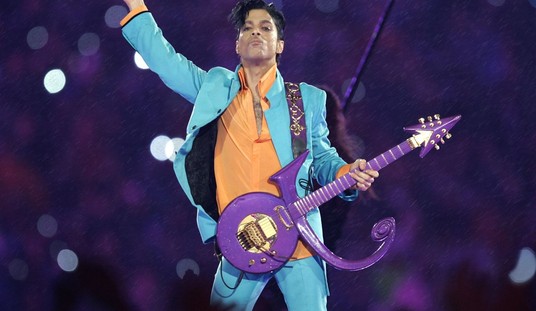
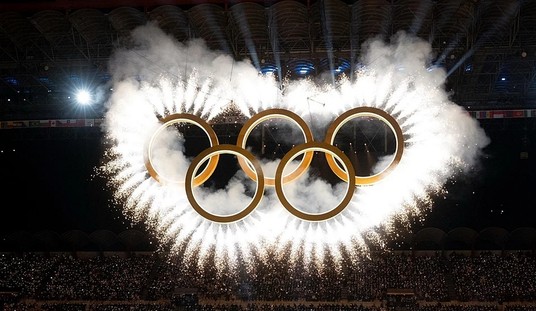

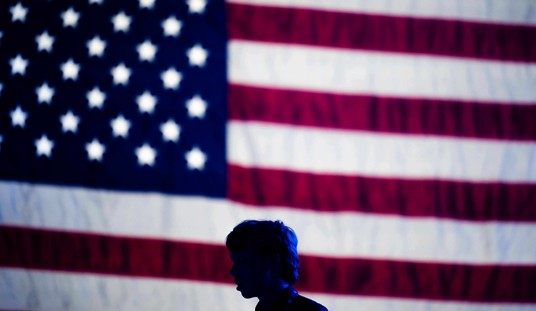


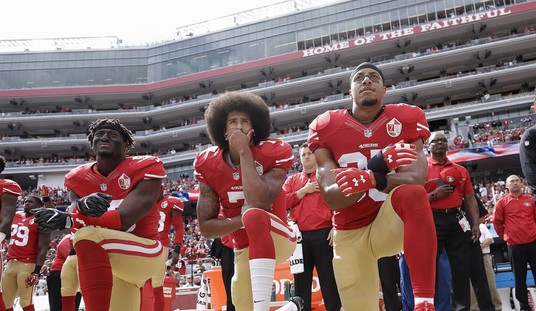



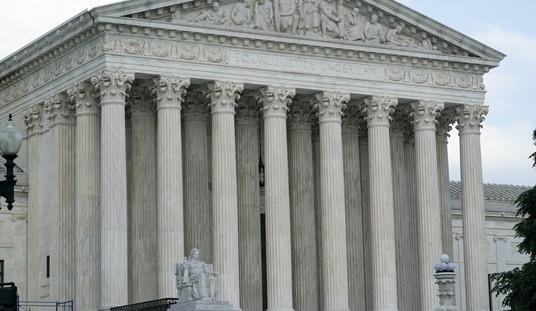


Join the conversation as a VIP Member